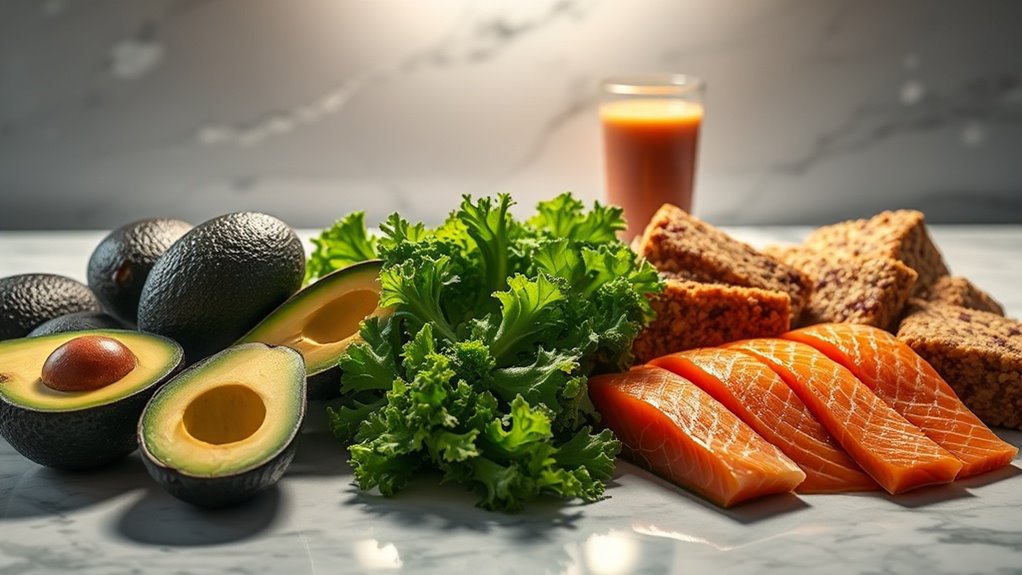5 Common Nutrition Myths That May Be Holding You Back
You might be surprised to learn that many beliefs about nutrition have been debunked in recent years. For instance, the misconception that all carbs are bad can hinder your overall energy levels. Similarly, ideas about healthy fats and late-night eating may not be as straightforward as they seem. Understanding these myths is essential for making informed dietary choices. So, what are the common myths that could be impacting your health goals?
Carbohydrates Are the Enemy
While you might’ve heard that carbohydrates are the enemy in your quest for better health, this notion is misleading.
Carbohydrates provide essential energy for your body, especially for physical activity and brain function. Many nutrition myths suggest cutting carbs entirely, but whole grains, fruits, and vegetables are vital components of a balanced diet.
Moderation, not elimination, is key for optimal health. Additionally, focusing on quality and moderation of carbs can greatly enhance your nutritional intake and well-being.
Healthy Fats Will Make You Gain Weight
Are you worried that incorporating healthy fats into your diet will lead to weight gain? The truth is, healthy fats can actually support your weight management goals when consumed in moderation.
Consider the benefits:
- They enhance satiety, reducing overeating.
- They’re essential for nutrient absorption.
- They support metabolic health.
- Healthy fats promote brain function.
- They can improve your heart health.
- Additionally, healthy fats help maintain skin’s moisture levels and barrier function.
Enjoy them wisely!
Eating Late at Night Causes Weight Gain
Many people believe that eating late at night directly leads to weight gain, but the reality is more nuanced.
It’s not the timing that matters, but the total calorie intake and food choices.
If you eat healthy portions and maintain a balanced diet, late-night snacks won’t necessarily harm your weight.
Focus on moderation and quality rather than obsessing over the clock. However, it’s important to consider that eating too late can disrupt sleep quality, which may indirectly affect weight management.
Detox Diets Are Necessary for Cleansing
Detox diets have gained popularity, with some claiming they’re essential for cleansing your body, but scientific evidence doesn’t support this notion. Your body naturally detoxifies itself.
Instead of restrictive detox diets, focus on:
- Drinking plenty of water
- Eating whole foods
- Prioritizing fiber-rich fruits and vegetables
- Limiting processed sugars
- Getting regular exercise
These habits promote a healthier body without the need for detox regimes. Additionally, maintaining balanced nutrition supports your body’s natural detoxification processes.
All Calories Are Created Equal
While you might assume that all calories contribute equally to your energy balance, the truth is far more complex. Different foods affect your metabolism, hormones, and hunger levels in unique ways. Here’s a comparison of various food types:
| Food Type | Caloric Density | Nutrient Value |
|---|---|---|
| Whole Grains | 4 cal/g | High |
| Sugary Snacks | 4 cal/g | Low |
| Lean Proteins | 4 cal/g | High |
| Processed Foods | 4 cal/g | Varies |
The choice between nutrient-dense calories and empty calories can significantly influence your overall health and energy levels.



